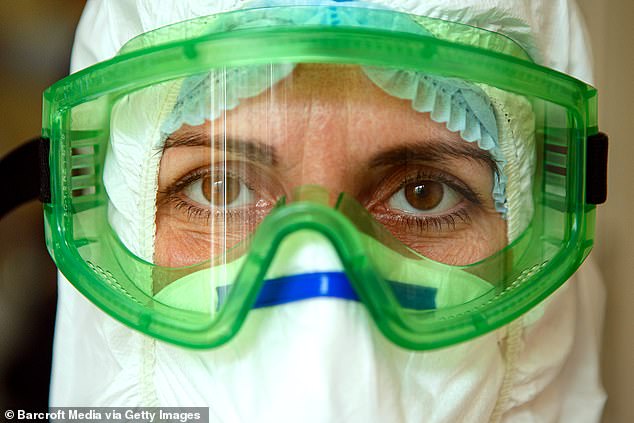Belgium on Monday joined a growing list of countries to launch COVID-19 vaccination campaigns, while a new coronavirus variant believed to be more infectious spread further and other nations ramped up restrictions.
Israel, where Prime Minister Benjamin Netanyahu has boasted of a “world record” vaccination drive that inoculated 380,000 of its 8.7 million people by Monday, began issuing shots to soldiers at 17 centres nationwide.
While the IDF is “one of the first militaries in the world to launch a vaccination campaign for its soldiers,” it will be “months” before all are protected, doctor Yael Arbel of the army medical corps said.
The Middle Eastern country began its third coronavirus lockdown on Sunday, while Poland on Monday entered three weeks of new restrictions.
Just as vaccination drives gather pace, global infections have raced past 80 million with nearly 1.8 million deaths.
Fears have been raised by a new strain of COVID-19 first detected in Britain and believed by experts to be potentially more transmissible.
After it spread to several European countries as well as Japan and Canada, South Korea became the latest nation Monday to detect the virus variant, in three individuals from a London-based family who arrived in the country last week.
Five cases were also identified in Spain’s southern Andalusia region.
Itself hard hit by the strain, South Africa became the first African nation to log one million cases, official data showed Sunday.
Authorities there considered reimposing restrictions to battle the second wave of infections, with leaders worldwide facing similar dilemmas over unpopular and economically damaging lockdowns.
Vaccine holdup
Most European countries began their vaccination campaigns over the weekend, boosting hopes of an end to the pandemic, especially in some of the hardest-hit parts of the continent.
“Today is a big moment when you think back to all that we have been through,” said Isabella Palazzini, an Italian nurse in Cremona who lost three colleagues to COVID-19.
Belgium became the latest EU member to join the bloc’s coordinated immunisation drive.
With old-age home residents first in line, followed by carers, medical staff and social workers, “I think it’s a relief… COVID was a true trial for residents and staff,” Brussels region health minister Alain Maron said.
But pharmaceutical company Pfizer warned of delays to some shipments of the vaccine to eight nations from its factory in the country’s north.
A “minor logistical issue” meant some vaccine deliveries were “rescheduled”, Pfizer spokesman Andrew Widger said, but insisted the problems had been “resolved”.
‘Critical point’
In the United States, the world’s worst-hit country, known coronavirus infections surged past 19 million on Sunday after adding a million cases in less than a week.
US cases have been surging at an alarming rate in recent months. The world’s largest economy has added at least one million new cases per week since early November, according to Johns Hopkins University data.
But there was some relief for Americans Sunday when President Donald Trump finally signed a $900 billion stimulus bill, a long-awaited boost for millions of people whose livelihoods have been battered by the pandemic.
While the US has also begun vaccinations, top government scientist Anthony Fauci warned Sunday that the worst of the pandemic may be yet to come, driving the country to a “critical point” as holiday travel spreads the coronavirus.
About two million Americans have been vaccinated so far, well below the 20 million the Trump administration has promised by year-end.
But Fauci played down the shortfall as a normal hiccup in a massively ambitious project, saying he was “pretty confident” that by April, all higher-priority people would be able to get vaccinated, clearing the way for the general population.
‘Food for thought’
Vaccination campaigns have also begun in China, Russia, Canada, Singapore and Saudi Arabia, and there was hope for one more successful vaccine on the horizon.
But there are worries over vaccine hesitancy or outright refusal among the public—especially because of anti-vaccine misinformation campaigns.
Polls have shown many Europeans are unwilling to take the vaccine, which could impede efforts to beat the virus and reach widespread immunisation.
A young German pilot found a unique way to raise awareness, tracing a giant syringe in the sky to mark the start of his country’s rollout of vaccines.
“I wanted to give people food for thought for the day the vaccine became available,” 20-year-old Samy Kramer, a student and amateur pilot, said Sunday.
burs-tgb/erc


